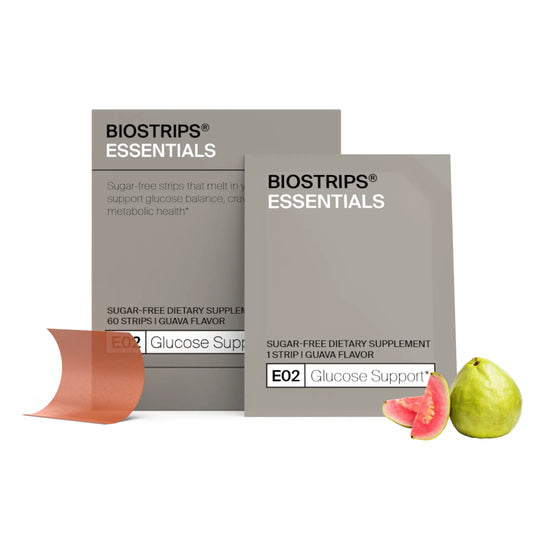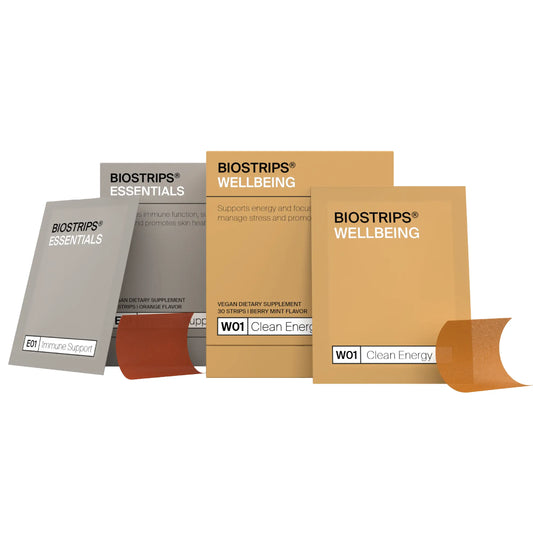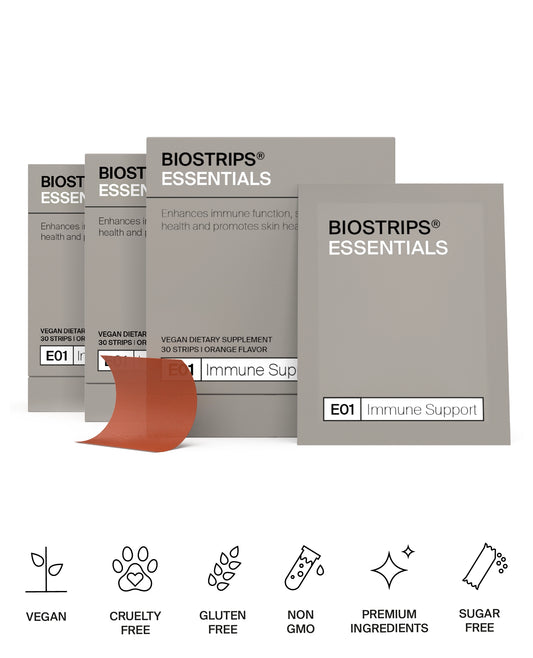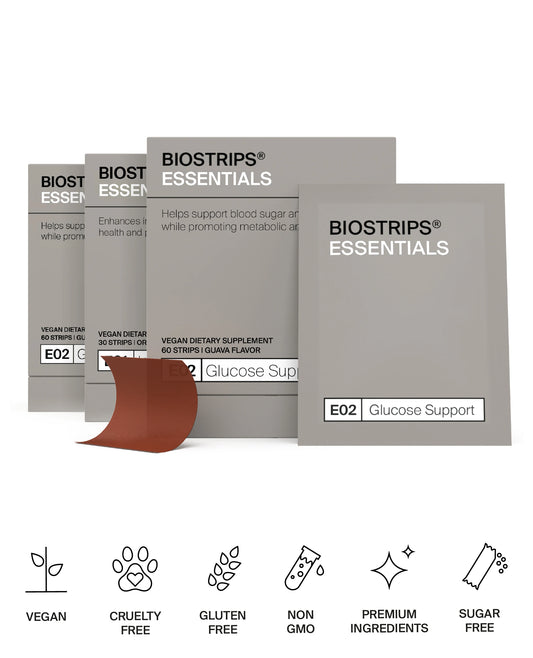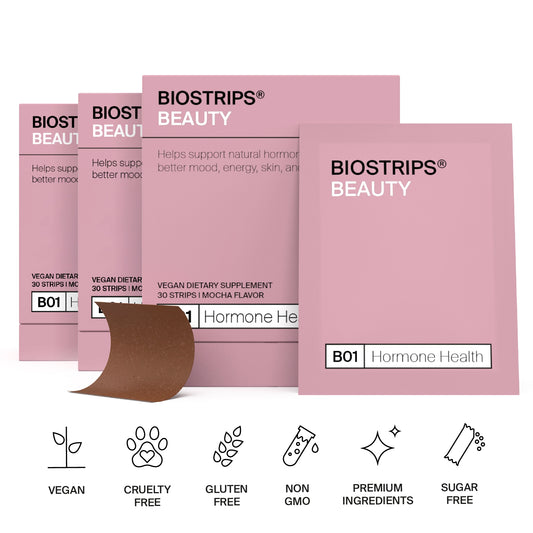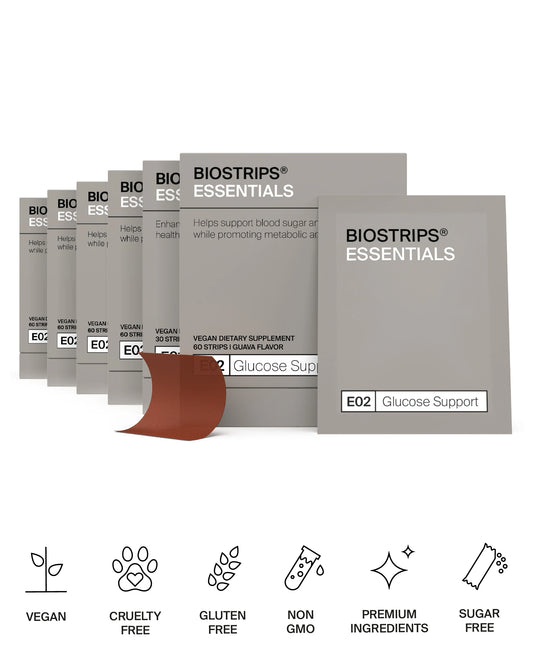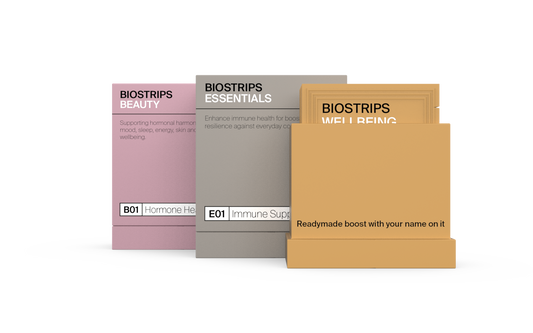Have you noticed unusual patterns or changes in and on your body? Or maybe you have been experiencing health problems from an early age.
Many issues we face daily may be symptoms of vitamin deficiency in your body.
Hair loss, brittle nails, restless legs, or even dandruff.
You may dismiss these symptoms as your body reacting to stress, a fast-paced lifestyle, or not even notice them at all. These symptoms are directly related to vitamin intake and deficiency in our bodies.
Listen to your body
In this article, you can find the most common symptoms of deficiency to any vitamins, as well as important information on how to address these issues and resolve them.
Defining vitamin deficiency
As the term itself suggests, if you are deficient in any vitamins and minerals, it means that your vitamin intake is not proper.
This can happen for several reasons. You either need to take a closer look at your diet and make some changes, or you may be suffering from an underlying medical condition. You can speak to your physician who can provide medical advice diagnosis or treatment and explain what is the best course of treatment.
If your body isn't receiving or absorbing enough vitamins of any kind, it is important to understand what symptoms you should pay closer attention to and how to make changes that will benefit your health.
Importance of a well-balanced diet
Most of the vitamins and minerals we need can be found in foods, so starting with a well-balanced diet is extremely important.
Vitamin B12, Iron, Vitamin C, Magnesium, they can all be found in the food we eat. A nutritious diet can be the easiest way to increase your vitamin levels and help improve your health.
For any iron-deficient readers, it is recommended to eat more fish and dark leafy greens, while anyone deficient in Magnesium should include more nuts such as Almonds and Cashews into their diet.

Common symptoms to look out for
Your body will give you signs if you are not getting enough vitamins. But to be able to notice those signs you need to know what to pay attention to.
Hair loss
Almost half of the adult population faces hair loss before even reaching 50, which makes this one of the most common symptoms.
Hair loss has been connected to Iron, Biotin, and Vitamin B3 deficiencies.
Vitamin B3, Zinc, and Iron deficiency are very common. One way to ensure you receive enough Iron and Zinc through your diet is to include more meat, fish, legumes, dark leafy greens, nuts, and whole grains into your daily nutrition habits.
Bleeding gums
Another easily overlooked symptom connected to vitamin intake and its deficiencies is bleeding gums.
Although bleeding gums can be related to harsh tooth brushing habits or dental issues, they are also connected to Vitamin C deficiency.
While it is directly related to your immunity and preventing cell damage, Vitamin C is one of the vitamins our bodies don't produce on their own.
Vitamin C can be found in most fruits and vegetables. However, people often do not have time or simply do not remember to include fruits and vegetables into their diet.
Weakness and fatigue
A lack of Vitamin B12 is most commonly noticed in people who opted for a vegan or vegetarian diet as this vitamin is found in animal products.
If you are a vegetarian, egg yolks and dairy are naturally packed with B12. Including these animal foods in your diet can increase your B12 levels and help you regain energy naturally.
To strengthen your vegan diet and increase your B12 intake there are vegan options that are supplemented with Vitamin B12.
The best way to find vegan products that have added B12 is to find it listed on the products Nutritious Facts label.

Common vitamin and mineral deficiencies
Being vitamin deficient is an issue that affects almost 10% of adult Americans, and unless it comes from a disorder it can be prevented and treated.
Iron
Iron deficiency is widespread but it is not that easy to detect. One of the reasons is that our bodies draw iron from the spleen, liver, and bone marrow.
If you don’t supply your body with enough iron through your diet, these supplies will run out and you may experience trouble sleeping shortness of breath, or even weakening of your immune system. Iron deficiency is also known to be the most common cause of anemia, as per Johns Hopkins Medicine website.
Iron can be found in food products such as meats, shellfish, lentils, tofu, nuts, and even raisins. Some foods that don’t usually contain iron, like cereal, can be fortified with it as well.
Calcium
Calcium is an important mineral, as it ensures the strength of our bones, teeth, and it affects our brain function. Similar to iron, calcium deficiency can be difficult to notice. If the body lacks calcium, it may draw it from our bones and create bigger health problems, such as hypocalcemia.
Calcium deficiency symptoms can include muscle weakness, dental issues, and even depression.
Calcium-rich foods such as cabbage, bok choy, cauliflower, radishes, and dairy products can help you prevent further problems this deficiency may cause you.

Vitamin A
Even though it is considered a rare deficiency, Vitamin A deficiency affects a multitude of functions.
Vitamin A is important for the immune system, and it helps kidneys, lungs, heart, and even eyes to work well. Symptoms of Vitamin A deficiency include night blindness, fertility issues, dry skin, and eyes, among other things.
Vitamin A is easily obtained through food, and it can be found in Carrots, Broccoli, Oranges, Apricots, some organ meats like liver, or in fortified products such as milk, yogurt, and breakfast cereal.
Vitamin B
Vitamin B complex refers to a group of eight vitamins, which all play a role in your health and bodily functions. B vitamins regulate cell growth and can even affect fetal development in pregnant women. If you are lacking vitamin B you may experience a range of symptoms from skin rashes, constipation, and even anemia or depression.
Depending on which Vitamin B you may be deficient in, it can be found in many food products and easily included in your diet. Eating more fish and shellfish, beets, spinach, beans, citrus, bananas, and watermelon can improve your Vitamin B levels, as these foods are rich in B vitamins.
To better understand the Vitamin B complex, I have included an explanation of the two most common Vitamin B deficiencies below:
Vitamin B6
As a part of the Vitamin B complex, Vitamin B6 is important as it plays a role in your neural development. Vitamin B6 deficiency is also relevant for people who suffer from kidney diseases or malabsorption syndromes, as the body doesn't get enough nutrients.
Vitamin B6 symptoms may include numbness and pain in fingers and toes, or more severe anemia, seizures, and depression. Some people may need supplements to ensure they get enough Vitamin B6. However, you can also find it in Chickpeas, Yellowfin Tuna, Bananas, Tofu, and nuts.
Including these foods into your diet may elevate your Vitamin B6 levels and help prevent some further health issues.
Vitamin B12
Vitamin B12 deficiency can affect you significantly, as Vitamin B12 helps to create red blood cells. It can play a role in the prevention of megaloblastic anemia which can affect your physical weakness. You can find more information on anemia in the article by Mayo Clinic about Vitamin Deficiency Anemia.
Vitamin B12 comes from animal products, so it is important to include fish, red meat, poultry, and dairy products in your diet. If you are not able to get Vitamin B12 through these products, there are many fortified foods you can buy, that will help with Vitamin B12 deficiencies.
Human bodies do not make vitamin B12 on their own, so you need to make sure you get it through your food or supplements.
Vitamin C
The importance of Vitamin C is huge, as it is important in supporting your immune system. Vitamin C deficiency is directly related to infections like a common cold, as well as collagen production. Vitamin C can also improve your iron absorption, so people who are iron deficient should ensure they get enough Vitamin C.
Most of the fruits and vegetables are packed with Vitamin C. Eating enough raw or steamed vegetables is also recommended, as heat is known to break down Vitamin C in foods.
Bell Peppers, Brussels Sprouts, Broccoli are some of the vegetables that have Vitamin C, while Cantaloupes, Oranges, Kiwifruit, and Strawberry are the fruits that carry the most Vitamin C.

Vitamin D
Vitamin D deficiency is a tricky one for several reasons. It depends mostly on the area you live in, and how much sun exposure you get, as it is mostly derived from the sunlight.
However, it also can be decreased by sunscreen, as it blocks Vitamin D production in human bodies. Vitamin D is also crucial for Calcium absorption.
Vitamin D deficiency can be noticed through frequent illness, mood changes, and even skin problems.
Although it can be found in Salmon, Tuna, milk, and yogurt, experts recommend finding supplements to ensure the proper intake.
Magnesium
Magnesium plays a big role in how the human bodies work. It is crucial in many functions from cardiovascular health to, muscle functions, and bone health.
Even though Magnesium can be found in many food products, only about 40 percent of it is actually absorbed by your body.
Magnesium is found in Bananas, Avocados, Soy products, Salmon, milk, and dark chocolate, to name a few. It is recommended to find additional ways to increase your Magnesium intake.
Zinc
This deficiency is one of the most recorded ones, it is estimated that one-third of the world population suffers from Zinc deficiency.
Since it is extremely important for growth and development you should pay attention to Zinc deficiency symptoms which include weight and hair loss, poor alertness, and slower healing of your wounds.
Zinc-rich foods including Oysters, Legumes, Oatmeal, nuts, seeds, and dark chocolate will elevate your mineral levels.
Potassium
Potassium deficiency is one of the biggest concerns in the modern world, and it affects over 90 percent of people in America.
Since it is vital for most bodily functions, including kidneys, heart, and nerves, Potassium intake is extremely important.
If you are experiencing symptoms such as heart palpitations, difficulty in breathing, mood changes, or high blood pressure, you should include more fruits and vegetables in your nutrition.
Potassium is found in a long list of fruits and vegetables, from Apricots, Prunes, Bananas, Oranges, to Squash, Eggplant, Pumpkin, Potatoes, Tomatoes, even poultry, and fish.

Vitamin or Mineral Deficiency Testing
The deficiency of any vitamins or minerals is tested through your blood. This can be done by either visiting the doctor and doing a simple blood test, or with an at-home test. At-home tests will still require you to send your blood sample to a lab so your blood can be tested.
It is best to speak to a physician if you are experiencing any symptoms that are related to these deficiencies.
And don't forget, if you take care of your body it will take care of you!
